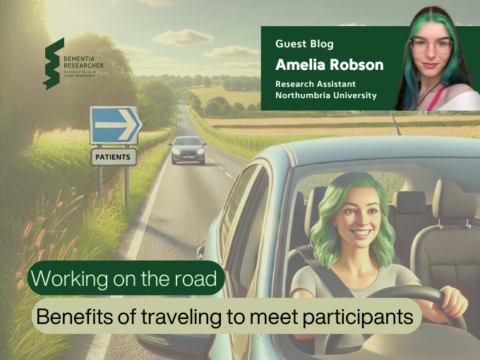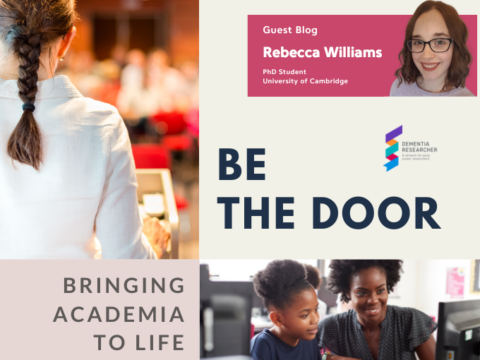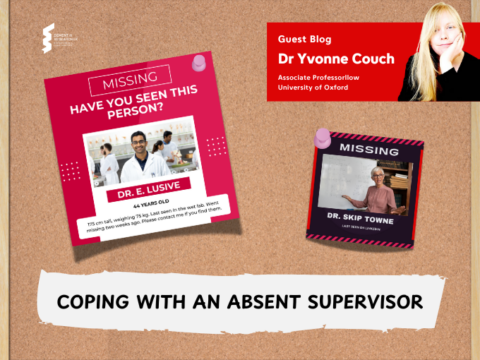In this blog, I am not going to talk about how to write a great grant application or how to write a paper, there are already dozens of articles on here that talk about that. I am going to talk about resilience and how to overcome the knock-backs that come from rejection, how the choices you make can make you a more resilient person.
To work in research you need to have the ability to adapt, and to manage adversity, tragedy, rejection, stress and uncertainty. These skills don’t just apply to grant or paper rejections, they apply to so many elements of your life and work, from the clinician working with people living with dementia day-in and day-out, the lab researcher who can’t quite make the experiment work, or the data scientist frustrated with their code.
Of course being resilient does not mean that you won’t experience difficulty, distress, disappointment or anxiety but it does mean you will have the ability to navigate these stressful situations. When you have the skills and the confidence to confront and work through these problems, you can internalise the message that you are strong and capable – and you CAN KEEP GOING, YOU CAN RESUBMIT THAT PAPER, YOU CAN GET THE NEXT GRANT.
Dr Ginsburg, human development expert, proposes that there are 7 integral and interrelated components that make up being resilient – competence, confidence, connection, character, contribution, coping and control. Now I am not entirely sure I buy into these 7c’s but I definitely can see how some of them have relevance. So lets go through them – and add in a few inspirational quotes to emphasise the points.

 Competence
Competence
Competence is the ability to know how to handle stressful situations effectively. It requires having the skills to face challenges. This isn’t something you can teach, it is doing the things you know you need to do – breathing, getting outside, staying calm, exercise, compartmentalising.
“Our lives are defined by opportunities, even the ones we miss” The Curious Case of Benjamin Button
 Confidence
Confidence
Confidence is the belief in one’s own abilities and is rooted in competence. You gain confidence by being able to demonstrate your competence in real situations. One way to gain confidence is by taking opportunities to present your work, to big audiences or small, even if you just write a blog, and practice, practice, practice.
“Work it, make it, do it, makes us: harder, better, faster, stronger” Daft Punk
 Connection
Connection
If you keep strong ties to colleagues, people living with dementia and your support network, you are likely to have a stronger sense of security and sense of belonging. This is an important one for me – if you have a direct line of sight between your work, and the people that benefit, it makes it harder to give up, and it’s a great reminder of why you’re writing that grant application, why you’re doing a PhD. If you work in a lab, step outside, do some volunteering, public engagement, create a connection – I promise it is worth it.
“If life seems jolly rotten, There’s something you’ve forgotten!” Monty Python
 Character
Character
Academics with “character” enjoy a strong sense of self-worth and confidence. Self-worth and confidence, something that may be at an all-time low when you get a grant rejection – but remember they are not rejecting YOU, there are lots of reasons for grant rejections. Take the feedback, improve and remember, sometimes it is just that there isn’t enough money to go around – the person that got the funding isn’t better that you.
“I get knocked down, But I get up again, You’re never going to keep me down” Chumbawumba
Contribution
If you feel you are personally contributing to the field you work within, you can learn the powerful lesson that the world is a better place because you’re in it, doing your work – this ties back to connection.
“Sometimes it’s the journey that teaches you a lot about your destination.” Drake
 Coping
Coping
Researchers who have a wide repertoire of coping skills (social skills, stress reduction skills) are able to cope more effectively and are better prepared to overcome life’s challenges.
“Nobody is gonna hit as hard as life, but it ain’t how hard you can hit. It’s how hard you can get hit and keep moving forward. It’s how much you can take, and keep moving forward. That’s how winning is done.” Rocky Balboa
 Control
Control
Accepting there are things that you can and can’t control, make it more likely that you can bounce back from life’s challenges.
“Oh yes, the past can hurt. But you can either run from it, or learn from it.” The Lion King
So… easy right! No, perhaps easier said that done, but hey I have one very practical suggestion. Join the Dementia Researcher Whatsapp Community, and I promise you’ll find a supportive group of people, facing the same challenges as you – and even no one else says this, I’m your biggest fan, I value your contribution, and if I can help…. I will, just ask.
“Get up, stand up! Don’t give up the fight!” – Bob Marley
PS Thanks to Dr Yvonne Couch for helping with the edit
Author
Adam Smith was born in the north, a long time ago. He wanted to write books, but ended up working in the NHS, and at the Department of Health. He is now Programme Director in the Office of the NIHR National Director for Dementia Research (which probably sounds more important than it is) at University College London. He has led a number of initiatives to improve dementia research (including this website, Join Dementia Research & ENRICH), as well as pursuing his own research interests. In his spare time, he grows vegetables, builds Lego & spends most of his time drinking too much coffee and squeezing technology into his house.
How do you deal with rejection? Reply in the box below

 Print This Post
Print This Post






